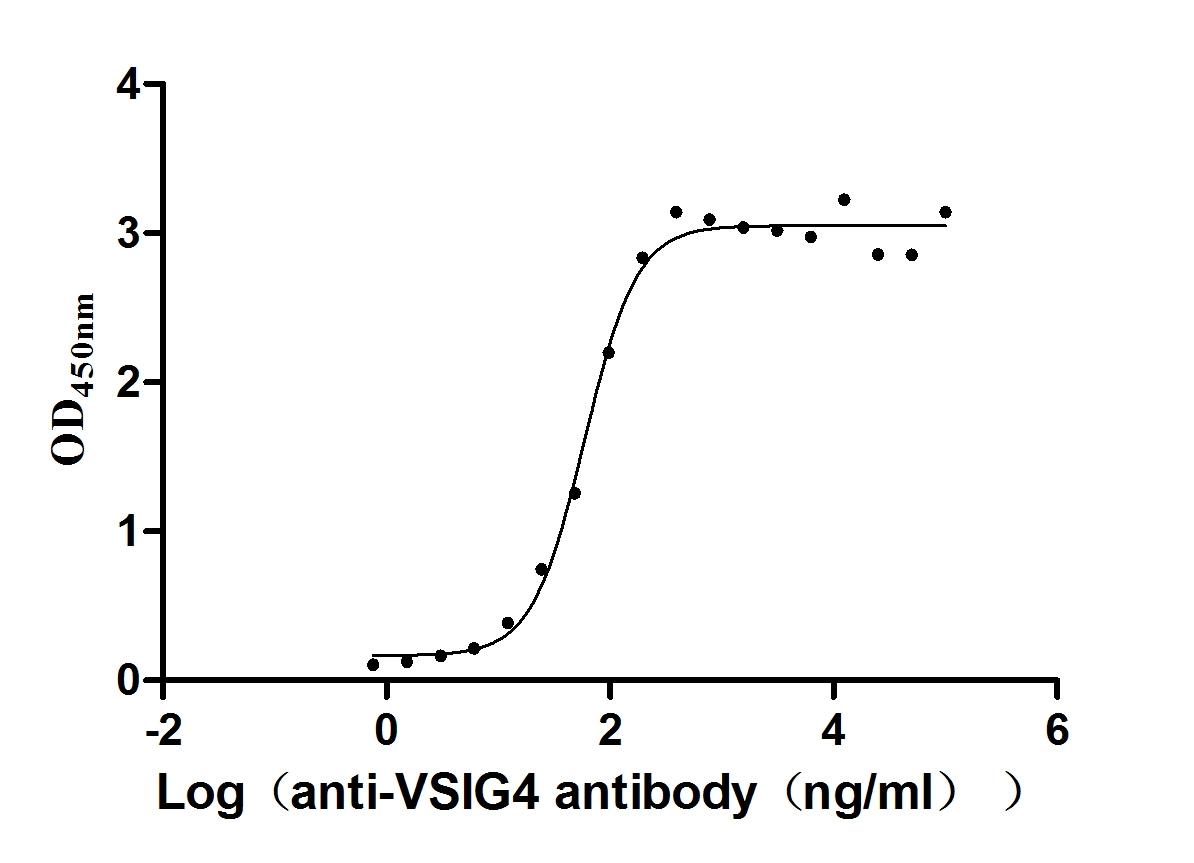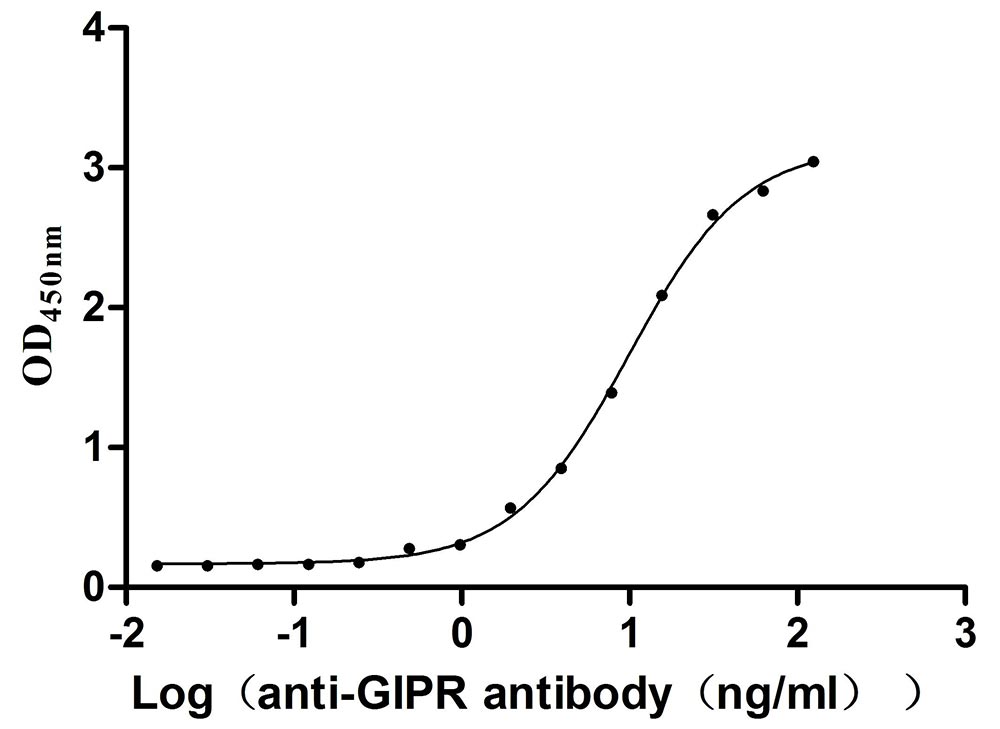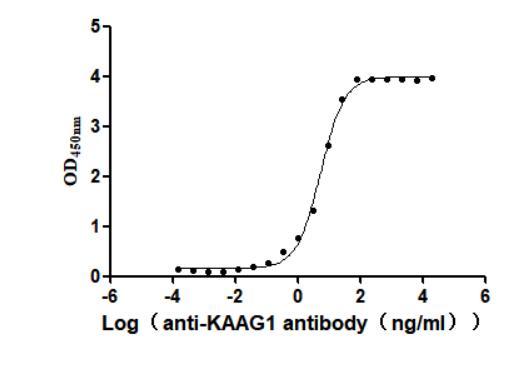Recombinant Loxosceles intermedia Sphingomyelin phosphodiesterase D LiSicTox-alphaIA2aii
-
中文名稱:Recombinant Loxosceles intermedia Sphingomyelin phosphodiesterase D LiSicTox-alphaIA2aii,Yeast
-
貨號(hào):CSB-YP315381LRA
-
規(guī)格:
-
來(lái)源:Yeast
-
其他:
-
中文名稱:Recombinant Loxosceles intermedia Sphingomyelin phosphodiesterase D LiSicTox-alphaIA2aii,Yeast
-
貨號(hào):CSB-EP315381LRA
-
規(guī)格:
-
來(lái)源:E.coli
-
其他:
-
中文名稱:Recombinant Loxosceles intermedia Sphingomyelin phosphodiesterase D LiSicTox-alphaIA2aii,Yeast
-
貨號(hào):CSB-EP315381LRA-B
-
規(guī)格:
-
來(lái)源:E.coli
-
共軛:Avi-tag Biotinylated
E. coli biotin ligase (BirA) is highly specific in covalently attaching biotin to the 15 amino acid AviTag peptide. This recombinant protein was biotinylated in vivo by AviTag-BirA technology, which method is BriA catalyzes amide linkage between the biotin and the specific lysine of the AviTag.
-
其他:
-
中文名稱:Recombinant Loxosceles intermedia Sphingomyelin phosphodiesterase D LiSicTox-alphaIA2aii,Yeast
-
貨號(hào):CSB-BP315381LRA
-
規(guī)格:
-
來(lái)源:Baculovirus
-
其他:
-
中文名稱:Recombinant Loxosceles intermedia Sphingomyelin phosphodiesterase D LiSicTox-alphaIA2aii,Yeast
-
貨號(hào):CSB-MP315381LRA
-
規(guī)格:
-
來(lái)源:Mammalian cell
-
其他:
產(chǎn)品詳情
-
純度:>85% (SDS-PAGE)
-
基因名:N/A
-
Uniprot No.:
-
別名:Dermonecrotic toxin LiSicTox-alphaIA2aii; EC 4.6.1.-; Dermonecrotic toxin 2; DT2; LiRecDT2; LiP2; P2; Phospholipase D; PLD; Sphingomyelin phosphodiesterase D 2; SMD 2; SMase D 2; Sphingomyelinase D 2; Fragment
-
種屬:Loxosceles intermedia (Spider)
-
蛋白長(zhǎng)度:Full Length of Mature Protein
-
表達(dá)區(qū)域:6-285
-
氨基酸序列ADKRR PIWIMGHMVN AIAQIDEFVN LGANSIETDV SFDDNANPEY TYHGIPCDCG RSCLKWENFN DFLKGLRSAT TPGNAKYQAK LILVVFDLKT GSLYDNQANE AGKKLAKNLL KHYWNNGNNG GRAYIVLSIP DLNHYPLIKG FKDQLTQDGH PELMDKVGHD FSGNDAIGDV GNAYKKAGIS GHVWQSDGIT NCLLRGLDRV KQAIANRDSA NGFINKVYYW TVDKRATTRD ALDAGVDGVM TNYPDVITDV LNESAYKNKF RVASYEDNPW ETFKK
-
蛋白標(biāo)簽:Tag?type?will?be?determined?during?the?manufacturing?process.
The tag type will be determined during production process. If you have specified tag type, please tell us and we will develop the specified tag preferentially. -
產(chǎn)品提供形式:Lyophilized powder
Note: We will preferentially ship the format that we have in stock, however, if you have any special requirement for the format, please remark your requirement when placing the order, we will prepare according to your demand. -
復(fù)溶:We recommend that this vial be briefly centrifuged prior to opening to bring the contents to the bottom. Please reconstitute protein in deionized sterile water to a concentration of 0.1-1.0 mg/mL.We recommend to add 5-50% of glycerol (final concentration) and aliquot for long-term storage at -20℃/-80℃. Our default final concentration of glycerol is 50%. Customers could use it as reference.
-
儲(chǔ)存條件:Store at -20°C/-80°C upon receipt, aliquoting is necessary for mutiple use. Avoid repeated freeze-thaw cycles.
-
保質(zhì)期:The shelf life is related to many factors, storage state, buffer ingredients, storage temperature and the stability of the protein itself.
Generally, the shelf life of liquid form is 6 months at -20°C/-80°C. The shelf life of lyophilized form is 12 months at -20°C/-80°C. -
貨期:Delivery time may differ from different purchasing way or location, please kindly consult your local distributors for specific delivery time.Note: All of our proteins are default shipped with normal blue ice packs, if you request to ship with dry ice, please communicate with us in advance and extra fees will be charged.
-
注意事項(xiàng):Repeated freezing and thawing is not recommended. Store working aliquots at 4°C for up to one week.
-
Datasheet :Please contact us to get it.
靶點(diǎn)詳情
-
功能:Dermonecrotic toxins cleave the phosphodiester linkage between the phosphate and headgroup of certain phospholipids (sphingolipid and lysolipid substrates), forming an alcohol (often choline) and a cyclic phosphate. This toxin acts on sphingomyelin (SM) with high activity. It may also act on ceramide phosphoethanolamine (CPE), lysophosphatidylcholine (LPC) and lysophosphatidylethanolamine (LPE), but not on lysophosphatidylserine (LPS), and lysophosphatidylglycerol (LPG). It acts by transphosphatidylation, releasing exclusively cyclic phosphate products as second products. Shows high hemolytic activity. Induces dermonecrosis, vascular permeability, edema, inflammatory response, and platelet aggregation. Also shows cytotoxicity against renal epithelial cells. In addition, also induces hemolysis in a complement-dependent manner and probably also in a complement-independent manner. The hemolysis provoked in a complement-independent manner may be composed of several steps. The toxin may bind to erythrocyte membranes, may hydrolyze membrane phospholipids (SM and LPC) thus generating metabolism products that may cause hemolysis, probably by provoking an increase of calcium inside cells. The calcium influx may be due to the opening of L-type calcium channels, since L-type calcium channel blockers inhibit calcium influx. In vivo, is lethal to mice when intraperitoneally injected.
-
亞細(xì)胞定位:Secreted.
-
蛋白家族:Arthropod phospholipase D family, Class II subfamily
-
組織特異性:Expressed by the venom gland.
Most popular with customers
-
Recombinant Human Claudin-4 (CLDN4)-VLPs (Active)
Express system: Mammalian cell
Species: Homo sapiens (Human)
-
Recombinant Human V-set and immunoglobulin domain-containing protein 4 (VSIG4), partial (Active)
Express system: Mammalian cell
Species: Homo sapiens (Human)
-
Recombinant Human Myosin regulatory light polypeptide 9 (MYL9) (Active)
Express system: Yeast
Species: Homo sapiens (Human)
-
Recombinant Human Transferrin receptor protein 1 (TFRC), partial (Active)
Express system: Mammalian cell
Species: Homo sapiens (Human)
-
Recombinant Mouse Gastric inhibitory polypeptide receptor (Gipr), partial (Active)
Express system: Mammalian cell
Species: Mus musculus (Mouse)
-
Recombinant Human C-C chemokine receptor type 6(CCR6)-VLPs (Active)
Express system: Mammalian cell
Species: Homo sapiens (Human)
-
-
Recombinant Human Kidney-associated antigen 1(KAAG1) (Active)
Express system: Baculovirus
Species: Homo sapiens (Human)


















